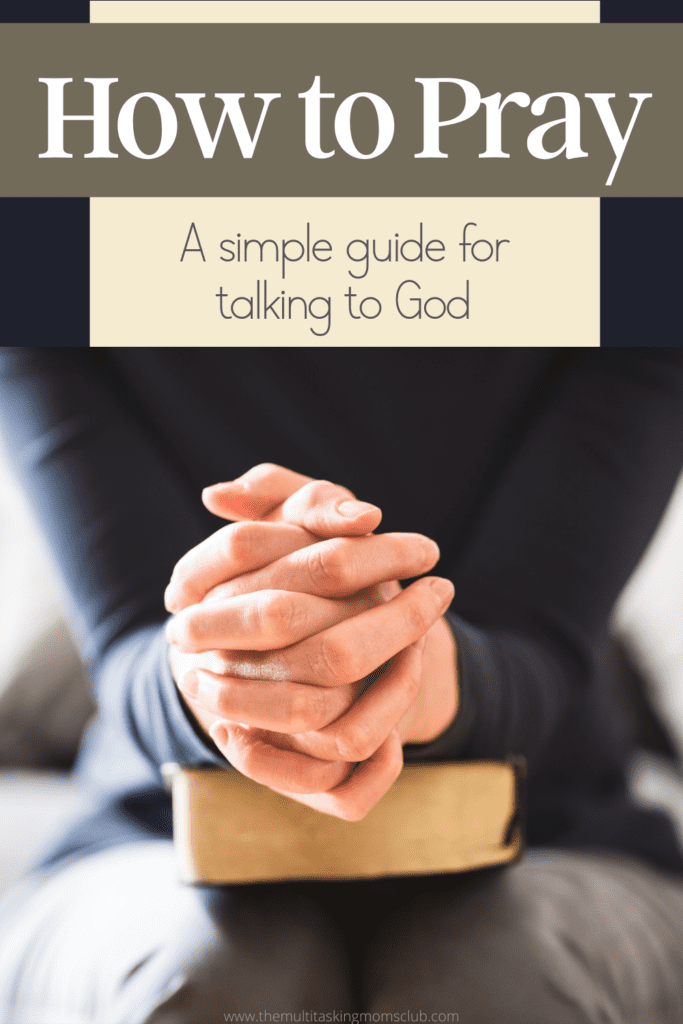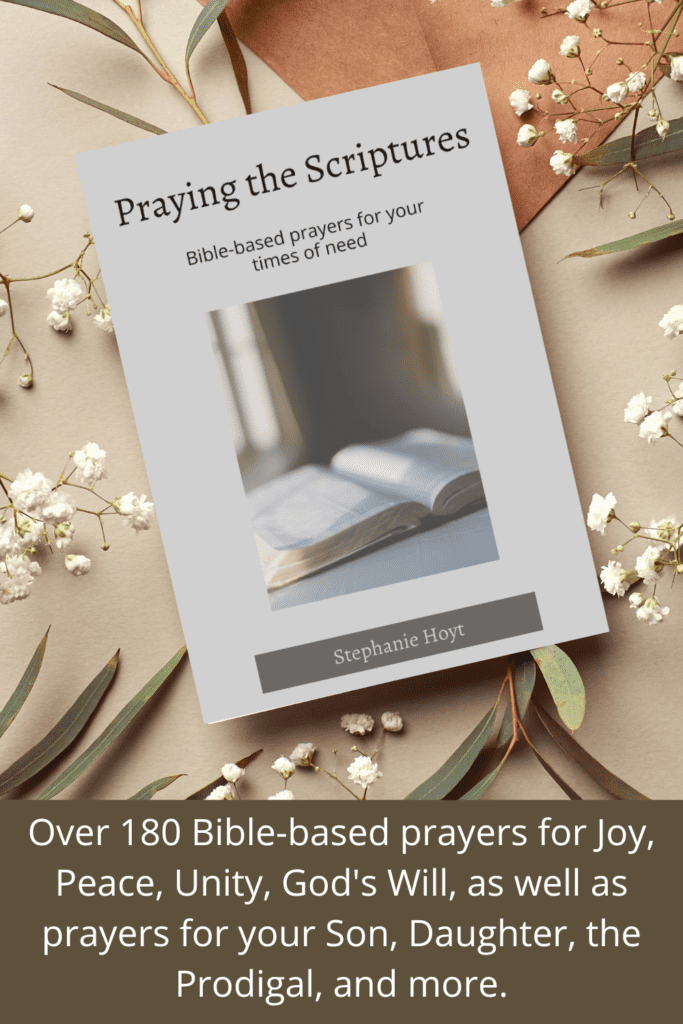It’s no wonder so many people don’t know how to pray.
Praying – or talking to God – is not intuitive, given our struggle with the flesh vs. the spirit. Our flesh wants to glorify ourselves and put ourselves first. But praying in the Spirit means putting God first and relying on His wisdom.
Jesus shows us how to pray in his Sermon on the Mount found in the Gospel of Matthew chapter 6.
“In this manner, therefore, pray: ‘Our Father in heaven, hallowed be your name. Your kingdom come. Your will be done, on earth as it is in heaven. Give us this day our daily bread. And forgive us our debts as we forgive our debtors. And do not lead us into temptation, but deliver us from the evil one. For Yours is the kingdom and the power and the glory forever. Amen.
Matthew 6:5-13 NKJV
Following Jesus’ example, praying consists of four parts: Adoration, Confession, Thanksgiving, and Supplication. This is how to pray using the ACTS method.

Let’s dive deeper into each of the four parts of prayer.
Adoration
The key to learning how to pray is starting your prayer with adoration, or praise to God. Beginning your prayer here helps reset your perspective and puts God first.
Adoration means praising God for who He is and what He has done and what He is going to do.
There are many great examples of adoration in the Psalms. One of my favorites is: “The voice of the Lord is over the waters; the God of glory thunders, the Lord thunders over the mighty waters. The voice of the Lord is powerful; the voice of the Lord is majestic.” Psalm 29:3-4 NIV

Confession
Confessing your sin is the next step in getting the right perspective before God. With adoration, you have established in your heart and mind the greatness of God. With confession, you acknowledge your sinful nature and your need for Almighty God.
Don’t gloss over confessing your sin. Take time to humbly examine your heart. Ask God to reveal to you the sins of your heart.
In Psalm 32, David acknowledges the benefits of confession: “When I kept silent, my bones wasted away through my groaning all day long. For day and night your hand was heavy on me; my strength was sapped as in the heat of summer. Then I acknowledged my sin to you and did not cover up my iniquity. I said, ‘I will confess my trangressions to the Lord.’ And you forgave the guilt of my sin.” Psalm 32:3-5 NIV
Thanksgiving
Now that you have established God’s awesomeness through adoration, and your own need of a Savior through confession, you are in the right frame of mind for thanksgiving.
Humbly thank God for all that He has done for you and all the blessings He has bestowed on you.
“Give thanks to the Lord, for he is good; his love endures forever.” 1 Chronicles 16:34 NIV
Supplication
Supplication just means presenting our requests to God.
If we’re honest, this is what typically draws us to pray. We pray because we want something from God – hope, cures for illness, a financial miracle.
It’s okay to pray for these things, as long as we submit ourselves to God’s will. What we want might not be what God has planned for us.
The best example of this is the Bible is in Luke 22. After the Last Supper, Jesus went to the Mount of Olives to pray. He knew he was going to be arrested and crucified, but still he prayed: “Father, if you are willing, take this cup from me; yet not my will, but yours be done.” Luke 22:42 NIV
Jesus prayed for the desire of his heart – to not have to go to the cross and suffer the physical pain.
But, he submitted to the will of the Father: “yet not my will, but yours be done.”
Conclusion
Learning how to pray is really about getting into the right frame of mind for coming to God. Starting with praise and adoration establishes God as the Supreme King. Confession is an honest acknowledgement of your short-comings and provides an understanding of why you need God. Thanksgiving is acknowledging how great God is to you. And, finally, you have the correct perspective to ask God for what you need, while never forgetting to submit to His will.
Be sure to check out all parts of the “How to Pray” series:
What Are Prayers of Adoration?
What Are Prayers of Confession?
